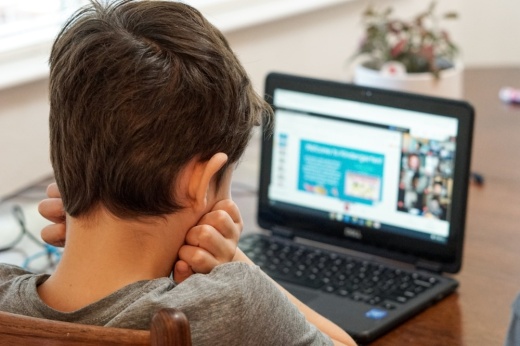The district said it will offer online instruction for the first nine weeks of the school year and then re-evaluate and extend the program as necessary until a COVID-19 vaccine is available for children under age 12. Once a vaccine is widely available for that age group, the district will end the virtual learning option.
Meghan Cone, FISD’s assistant director of communications, said rising coronavirus cases, the delta variant and parental concern led the district to offer online learning.
In Collin County, there were an estimated 2,524 active cases on Aug. 3 compared to 1,671 the week prior, per data from Texas Health and Human Services. Frisco does not provide city-specific COVID-19 information. About 10.2% of hospitalized patients in Collin County on Aug. 3 were confirmed to have COVID-19, according to state data.
There will not be an online option for students in grades seven through 12 because a vaccine is “strongly encouraged” for everyone above the age of 12, the district wrote in an email to parents.
Families interested in their children attending online classes must submit an application through the district's student portal by 11:59 p.m. Aug. 5. Applications will automatically enroll students in virtual classes and unenroll them from in-person learning. If a parent previously unenrolled their student from FISD and would like to participate in online learning for the fall, a parent will need to re-enroll their student as a ‘new student’ and select online learning within the new student registration form.
Students who opt for online learning will begin classes on Aug. 16. This is after the Aug. 12 in-person start date to give teachers additional planning time.
For every student enrolled in online learning for the fall semester, the district expects to lose $40 per student per day in funding, Cone said in a written statement. The state has not yet provided funding for virtual learning, but the district plans to use supplemental funds from the state to offset losses associated with the option, Cone added.
The district will receive about $13 million in supplemental funding for the 2021-22 school year. This comes from House Bill 1525, which lawmakers passed last spring for districts that received little or no funding from the Elementary and Secondary School Emergency Relief fund. FISD received $6.1 million from that federal grant.
If state funds are not sufficient to cover the lost funding, the district will use a small surplus from the approved 2021-22 budget and, if necessary, tap into reserve funds, Cone said.
The district will regularly update an FAQ page about the virtual learning option as more information becomes available.





